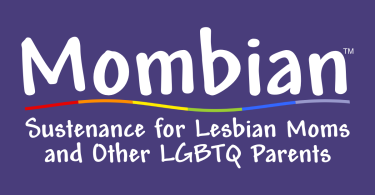Paul Thorn nearly died from a tuberculosis outbreak on a hospital ward (Photo: Chris Giles Photography)
I’ve been HIV-positive since 1988, and I was 17 years old when I was infected.
In 1995, as I was becoming ill with an AIDS-related illness, I was infected with multidrug-resistant tuberculosis (MDR-TB). If you read between the lines of my new book you will see that I’m more than a virus or disease. I’m a human being, full of hopes and dreams and prone to fear like everyone else.
As I write now, it is 2018. There’s still, hopefully, a lot of life to live.
I was a patient on an HIV unit at a West London hospital when I contracted MDR-TB. The
outbreak occurred when staff didn’t follow infection-control procedures. They carried out
several induced sputum sample tests on a patient who had come from Brazil (via Portugal) on
the open ward where we were also situated.
Inducing sputum is a simple procedure whereby the patient breathes in vaporized salty water (saline) so that he coughs, and sputum samples can be collected for testing. We should never have been in the same room as him whilst the procedure was carried out.
Sole survivor of tuberculosis outbreak
Consequently, seven others, including me, breathed in the infectious bacterium that he coughed up. I am the sole survivor of this oversight of safe procedure.
For some time prior to my experience, experts had been predicting that it was only a matter of
time before an outbreak of TB/MDR-TB occurred in such a way on an HIV unit.
Three months after exposure to the potentially deadly bacteria, I was told of the ‘accident’. My health had already been deteriorating prior to my knowledge of the event.
During that time, the tuberculosis bacilli multiplied slowly in my lungs without me knowing. My slowly-advancing chest pain and breathlessness was finally explained.
Then, without warning, I lost my liberty and was locked away from society in a negative-pressure isolation room so that I didn’t infect anyone else. I was told it was probable I would never leave, and to prepare to die. I was aged 24 and my short life was seemingly over.
Tuberculosis today
TB today is the leading cause of death from an infectious disease in adults. An estimated 10.4
million new people fall sick with TB each year, of whom at least 1.7 million die of the disease.
Drug-resistant forms of TB – which require treatment with prolonged and toxic regimens that are only able to cure about 50% of those who receive them—are also on the rise and are poised to be the leading cause of death due to antimicrobial resistance.
TB, in whatever form it comes, is a horror that nobody should have to face: it is characterized by fever, coughing (oftentimes blood), and a weight loss so profound that it has been given the colloquial name of “consumption”, since the body is often left skeletal and wasted by the disease.
It is also characterized by stigma, discrimination, and an imposed solitude that is said to consume the soul.
Kept in isolation for three months
I spent three months in the isolation room and whilst there I kept a diary. It details my decline
to the ravages of this ages old adversary. The main purpose was to try and keep a track of
things as the days seemed to merge together.
My diary became the place where I expressed my fears, a dialogue with myself trying to make sense of what was happening to me. The experience was at times surreal. Those who were looking after me always wore masks, for three months I didn’t see anyone smile, I never even knew what some of the people caring for me looked like.
The treatment was grueling. Over 30 tablets a day and three very nasty injections a week. There were times I was a hair’s width from giving up. The only thing that sustained me was my anger at how I had come to be infected.
The United Nations
Today (Wednesday 26th September), at the United Nations in New York, a High-Level meeting on Tuberculosis will take place. World leaders and high ranking officials will discuss TB and sign a declaration committing to tackle the disease.
This is only the fifth time ever an health issue has been discussed at the UN at this level, and the first time TB has been the topic. In 2001 a similar High-Level meeting on HIV was a game changer in terms of funding and access to ARV treatment, it’s hoped that this High-Level meeting will achieve the same.
I’ve published my diary to mark the event. Diary of a Modern Consumptive also includes quotes from media coverage that occurred in response to the outbreak, and letters that were sent to me by the LGBT community, often people that I never had to pleasure to meet or know. They are brought together to tell my story.
The inspiration behind the book is the work of ‘consumptive’ writers now long gone: John Keats, the Bronte sisters, D.H. Lawrence, Robert Louis Stevenson, George Orwell and Katherine Mansfield.
Tuberculosis kills more people with HIV than any other opportunistic infection. It’s a sad fact that people in some countries of the world, who could be thriving on anti-retrovirals are dying of another often curable disease.
If the leaders of the world are truly united in their determination to end TB in our lifetime they can. Their failure will mean millions more lives lost needlessly. If history shows this High-Level meeting not to be the turning point, then may it judge those who lead our nation’s accordingly.
Paul Thorn is the author of Diary of a Modern Consumptive, available now. Follow Paul at @Paul_Thorn on Twitter.







